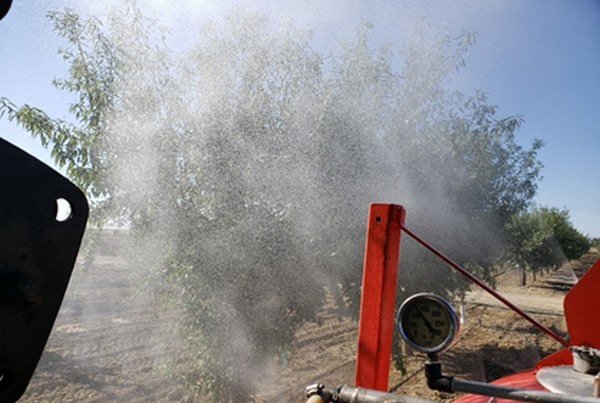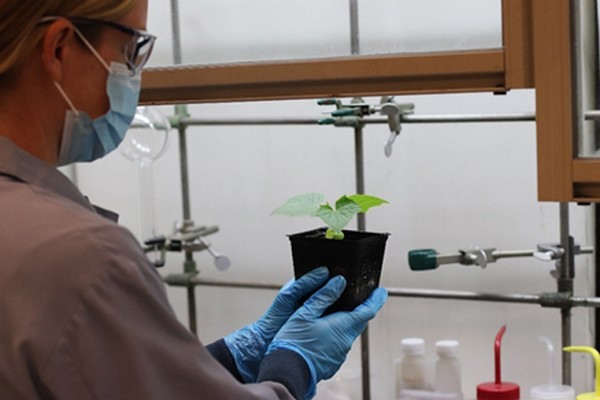“After applying CropCoat, insects don’t recognize the treated plants as something they want to feed or reproduce on,” says Dr. Damian Hajduk, chief technology officer at Crop Enhancement. The California-based company has a mission to create innovative and more sustainable pest control solutions for growers. “Consumers are demanding more environmentally friendly solutions, so growers are in need of more biological solutions to meet this demand.”
Camouflaging the plant from insects
The first step in this journey was the development of CropCoat®, a non-toxic broad-spectrum biopesticide that is compatible with organic agriculture. CropCoat is a biodegradable film made from plant extracts which is applied to the crop and dries to form a flavorless, odorless coating. This unassuming crop coating reduces pest pressure by camouflaging the plant from insects, according to Hajduk.
How does it work?
According to the company website, CropCoat first smothers any pests present upon application, then dries and binds to the plant surface within 1-2 hours, effectively camouflaging it from pests. After 12-24 hours, CropCoat hardens to a solid film and prevents insects from establishing themselves on the now-foreign surface. “Applying CropCoat alters the tactile, visual, olfactory and taste traits of the plant. Therefore, its unique mode of action is that it does not act on the pest itself but on the pest’s environment. We think that insects are affected by all of these changes to differing degrees. They don’t stop to feed on or damage the treated plants, nor do they stop to reproduce,” explains Hajduk.
Not affecting gas exchange
While CropCoat forms a protective layer against pest insects, the coating does not impede gas exchange as the coating has gaps or pores large enough to allow gas exchange but small enough to prevent insect feeding. Similarly, CropCoat reportedly has no impact on beneficial insects as these feed on pests, not the crop material.
Advancing the deployment of biopesticides
Crop Enhancement has recently announced a new partnership with OHP, Inc., a leader in technology-based solutions to challenges in the greenhouse and ornamental industry. This partnership, according to Hajduk, will allow Crop Enhancement to trial its products in various production systems and to advance the deployment of biopesticides. CropCoat will be available to US growers in 2023.
For more information:
Crop Enhancement
info@crop-enhancement.com
www.crop-enhancement.com
